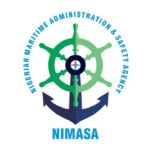
The Nigerian aviation industry is facing a significant crisis as the new tax regime signed into law by President Bola Ahmed Tinubu threatens to ground domestic airlines.
Dr. Allen Onyema, Chairman of Air Peace Ltd and Vice-President of the Airline Operators of Nigeria (AON), has warned that implementing the new tax laws would be disastrous for the industry.
The proposed taxes include customs duties on imported aircraft and spare parts, as well as a 7.5 percent Value Added Tax (VAT) on imported planes and ticket fares.
According to Onyema, Nigerian airlines are already overtaxed, and the new tax regime would push them to the brink of collapse.
“The airline would die within 48 hours if implemented,” Onyema stated, highlighting the potential consequences of the tax laws.
The aviation industry in Nigeria is already struggling with high taxes and charges, with passengers departing from Nigeria paying an average of $180 in ticket taxes and charges, significantly higher than the African average of $68.
The African Airlines Association’s (AFRAA) 2024 report ranked Nigeria third among African countries with the highest aviation taxes, behind Gabon and Sierra Leone.
This excessive taxation has sparked concerns among stakeholders, who argue that it stifles demand for air travel and hinders the growth of the aviation industry. Onyema emphasized that Nigerian airlines are already struggling to survive and urged the government to reconsider the new tax regime.
The implementation of the tax laws would have severe consequences, including the collapse of domestic airlines, massive job losses, and potential social instability.
Aviation stakeholders, including the Association of Foreign Airlines’ Representatives in Nigeria, have called for a review and reduction of aviation taxes and charges to promote the growth of the aviation industry. They argue that high operational costs make flights within Africa from Nigeria more expensive than some flights to Europe.
The Nigerian government has taken steps to ease some financial pressures on the industry, including clearing a backlog of nearly $900 million in foreign airline revenues trapped due to foreign exchange shortages.
However, stakeholders argue that more needs to be done to address the structural challenges facing the aviation industry. Onyema praised the current aviation minister, Festus Keyamo, for taking up the matter and noted that the present regime is doing a lot to support the aviation industry.
In light of the potential consequences of the new tax regime, it is essential for the government to carefully consider the impact on the aviation industry and work with stakeholders to find a solution that supports the growth and development of the sector.
The safety and sustainability of air travel depend on the collective efforts of all stakeholders, including aviation authorities, airlines, and government agencies.
READ ALSO: Over 60 Nigerian airlines fizzle out in three decades
WATCH TOP VIDEOS FROM NIGERIAN TRIBUNE TV
- Let’s Talk About SELF-AWARENESS
- Is Your Confidence Mistaken for Pride? Let’s talk about it
- Is Etiquette About Perfection…Or Just Not Being Rude?
- Top Psychologist Reveal 3 Signs You’re Struggling With Imposter Syndrome
- Do You Pick Up Work-Related Calls at Midnight or Never? Let’s Talk About Boundaries






